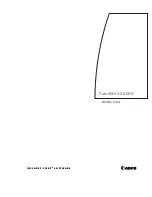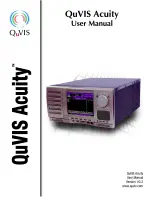
Option
Description
NOTE:
Setting this field to UEFI disables the BIOS Boot Settings menu. Setting this field to BIOS
disables the UEFI Boot Settings menu.
Boot Sequence
Retry
Enables or disables the Boot Sequence Retry feature. If this option is set to
Enabled
and the system fails to boot,
the system reattempts the boot sequence after 30 seconds. This option is set to
Enabled
by default.
Hard-Disk Failover
Specifies the hard drive that is booted in the event of a hard drive failure. The devices are selected in the
Hard-
Disk Drive Sequence
on the
Boot Option Setting
menu. When this option is set to
Disabled
, only the first hard
drive in the list is attempted to boot. When this option is set to
Enabled
, all hard drives are attempted to boot in
the order selected in the
Hard-Disk Drive Sequence
. This option is not enabled for UEFI Boot Mode.
Related links
Boot Settings
Viewing Boot Settings
Choosing the system boot mode
Changing the boot order
Choosing the system boot mode
System Setup enables you to specify one of the following boot modes for installing your operating system:
•
BIOS boot mode (the default) is the standard BIOS-level boot interface.
•
Unified Extensible Firmware Interface (UEFI) (the default) boot mode is an enhanced 64-bit boot interface. If you have configured your
system to boot to UEFI mode, it replaces the system BIOS.
1
From the
System Setup Main Menu
, click
Boot Settings
, and select
Boot Mode
.
2
Select the boot mode you want the system to boot into.
CAUTION:
Switching the boot mode may prevent the system from booting if the operating system is not installed in the
same boot mode.
3
After the system boots in the specified boot mode, proceed to install your operating system from that mode.
NOTE:
•
Operating systems must be UEFI-compatible to be installed from the UEFI boot mode. DOS and 32-bit operating systems do not
support UEFI and can only be installed from the BIOS boot mode.
•
For the latest information about supported operating systems, go to
.
Related links
Boot Settings
Boot Settings details
Viewing Boot Settings
Changing the boot order
About this task
You may have to change the boot order if you want to boot from a USB key or an optical drive. The following instructions may vary if you
have selected
BIOS
for
Boot Mode
.
Steps
1
On the
System Setup Main Menu
screen, click
System BIOS
>
Boot Settings
.
2
Click
Boot Option Settings
>
Boot Sequence
.
3
Use the arrow keys to select a boot device, and use the plus (+) and minus (-) sign keys to move the device down or up in the order.
4
Click
Exit
, and then click
Yes
to save the settings on exit.
Pre-operating system management applications
33















































